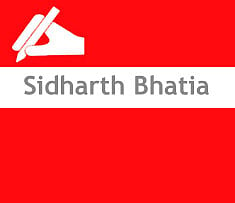A group of aspirants for civil service jobs launches a protest movement because they object to some aspects of the entrance examination. The government, after nearly two months, agrees to what appears to be their main demand—doing away with the English comprehension test. This test, the agitators have claimed, is biased against those who were educated in their own mother tongues. Wise pundits come on television and rail against the continued use of the language English language, terming it “elitist” and a “colonial hangover.” In the present climate, those are deadly allegations.
The government says marks from the English test will not be counted for the final result, which ought to end the matter. But it doesn’t; now the protestors want the competitive examination dropped altogether! The agitation will continue. The government’s strategy to defuse the situation appears to have miserably failed.
There are two possible reasons for this—either the government and its negotiators did not do due diligence and grasp what the protestors wanted, or the agitators fooled the government and went back on their word. Either way, it is a mess and an embarrassment for the Modi administration. Already aghast experts are calling for a reinstatement of the English examination, arguing, correctly, that some basic knowledge and understanding of the language is vital to do a civil servant’s job.
The bigger question that arises from this is, why did the government give in at all? It has been a tradition that faced with a big enough agitation, however unreasonable the demand may be, a government, after showing some signs of resistance, agrees to everything that is being asked. Knowing this, protestors, from trade unions to students to casteists, have blackmailed successive governments and managed to get their way. It is the easy and expedient way out.
But this government was supposed to be different. Narendra Modi was portrayed as a tough, no-nonsense administrator who would not succumb to pressure and hold his ground. Under his watch, trade unionism in Gujarat had virtually disappeared, which is what makes it so attractive to big investors and businessmen. His reputation preceded him before he became Prime Minister. The ‘acchhe din’ scenario was not supposed to be more of the same. And yet, in its first real test, the government succumbed and worse, even then did not manage to end the protest—this, seen any which way, is a failure.
Or, perhaps there was another reason why the demand was met. It is no secret that the Modi government is pro-Hindi; it wants to promote Hindi in a big way, since it considers it the country’s link language. Within days after taking office, it pushed forward a circular asking government departments to use social media in Hindi. After there was an outcry, the government clarified that it was an advisory only for North Indian states and then soon after claimed that it was in any case implementing what the UPA government had put into motion.
Saffron ‘scholars’ are asking for Urdu words to be removed from text books and be replaced by Hindi alternatives. It is thus not far-fetched to conclude that the Modi Government did not find the demand of the UPSC candidates that ridiculous and agreed to it.
Whatever the case may be, it shows the administration in a poor light. At the very least, it should have got its facts right and sat down with the protestors and found out what they wanted; anything that was unreasonable should have been immediately rejected. That doesn’t seem to have happened.
Two conclusions emerge from this episode. Firstly, this government has either not got its act together – an excuse that is becoming thinner by the day, since it is over two months old now – and is still hesitant about taking tough decisions.
A clear-cut message from the top that it would not succumb to such blackmailing tactics would have calmed the protestors down and brought them to the negotiating table right away. That did not happen. Others with some demand or the other are bound to take note of this and formulate their strategies accordingly.
Second, it is now clear that a linguistic – and by definition – cultural conflict between propagators of Hindi and everyone else is in the offing. The former will use their new found voice and their proximity to the new dispensation to advance the cause of Hindi and this will be resisted by those who feel Hindiwallahs are becoming too hegemonic. It is important to note that these critics are not just the southern parties, especially from Tamil Nadu, which has long been suspicious of the Hindi-belt politicians. The memory of the language wars of the 1960s are still fresh. But increasingly, educationists and others, including corporates, who want skilled workers, have raised objections to any move to do away with English and accord a more prominent place to Hindi in the school system.
We need more English, not less—it increases not just employment, but also social skills, which are critical in this fast globalising world. Countries like China want their people to learn English, and fast—we, who have a natural advantage, want to do away with it. By all means improve Hindi (and mother tongue) skills, but not at the cost of the country’s link language.
On both fronts – handling of a protest and giving in to the anti-English brigade, which happened to come together in the UPSC agitation – the government must work out a strategy that is fair to all. The first test has not gone off well, but this does not mean that Prime Minister Modi cannot recover and handle future situations better.
Sidharth Bhatia






